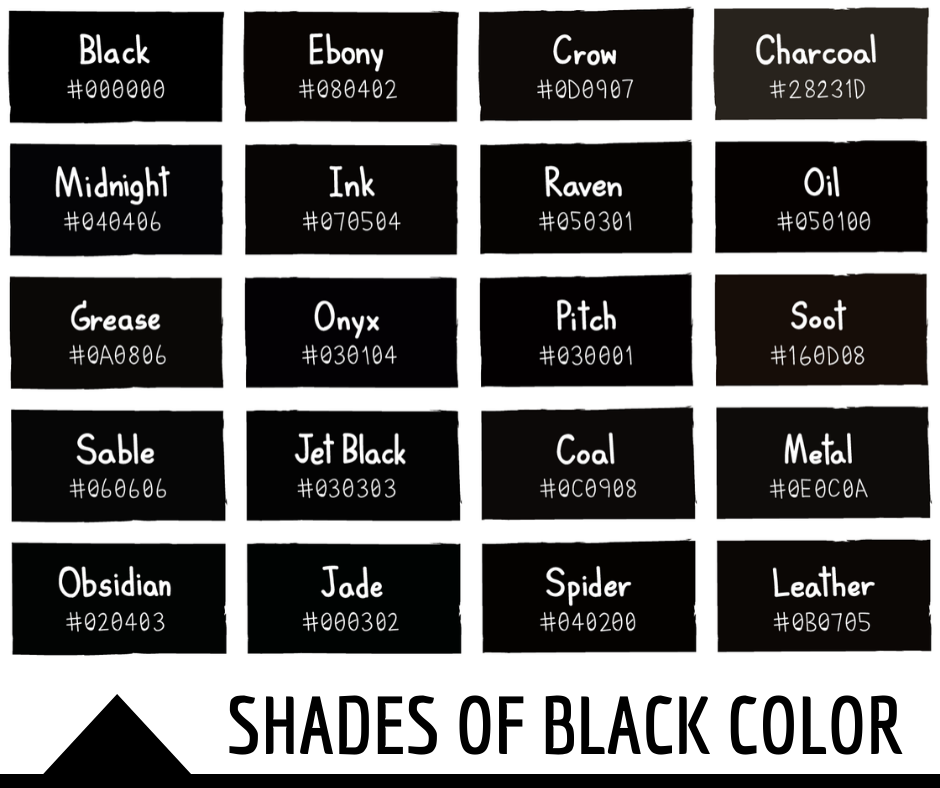📖 Article Content 📖
It's truly interesting how some groupings of words, when placed together, can really make you pause and consider their deeper layers. There are phrases that, you know, just seem to carry a certain weight, a feeling, or perhaps a collection of different ideas. We often come across these sorts of expressions in everyday talk, and they can sometimes spark a lot of thought, even if they aren't immediately clear in their intent.
When we hear something like "black thick granny," it might, in a way, prompt us to think about the individual components that make up this somewhat striking combination. What does 'black' bring to mind? And how about 'thick'? What feelings or images does the idea of a 'granny' generally bring forward? It's like taking apart a little puzzle, trying to see how each piece contributes to the overall picture we might form in our heads.
This exploration isn't about pinpointing one exact meaning, but rather about considering the many associations these words carry, as described by various sources. We'll be looking at the ideas connected to the color black, the concept of something being thick, and how these might, you know, blend with the general notion of an older woman. It's about seeing the different shades of meaning that can emerge from what seems like a simple phrase.
- The Bruzz House
- Codigos Para App Store
- Dexter Meme Doakes
- Im Finning It
- Couple Fashion Campaign Dancing Romance
Table of Contents
- What Does 'Black' Really Suggest?
- The Richness of Black in a 'black thick granny' Context
- How Does 'Thick' Come into Play?
- Understanding 'Thick' in the 'black thick granny' Image
- Are There Hidden Meanings in 'Black Thick Granny'?
- The Layers of 'black thick granny'
- What Perceptions Might 'Black Thick Granny' Evoke?
- The Complex Nature of 'black thick granny'
What Does 'Black' Really Suggest?
When we consider the color black, it's actually pretty fascinating how it's defined. You see, in a way, it's not really a color in the traditional sense, like red or blue. It's what happens when there's just no visible light at all, or when something takes in every bit of light that hits it. It's an achromatic hue, sort of like white or grey, meaning it doesn't have its own distinct color quality. From a scientific point of view, it's what our eyes perceive when light is completely absent, or when all the different light wavelengths in the visible spectrum are completely soaked up. It's a bit like the quiet stillness of night when there isn't any light to be seen.
Beyond its physical properties, black carries a whole lot of symbolic weight. It's often linked with feelings of fear and the unknown, which is pretty common in stories and old sayings. But it's also a color that can have, you know, a really positive side. While some might think of things like a 'blackbird' or a 'black bunny' as having a bit of a negative feel, phrases like 'in the black' suggest financial success, and 'black is beautiful' celebrates identity. So, it's a very versatile word, capable of holding many different meanings depending on how it's used and, in some respects, who is using it.
Black can certainly stand for strength and power. Think about how it's used in clothing or design; it often conveys a sense of authority and seriousness. It's also a color that can feel quite mysterious, perhaps even a little intimidating at times, but it also has a deep allure. It’s intense, to be honest, but it has this amazing ability to go well with nearly any other color you can think of. While it's true that some people might connect it with sadness or bad intentions, it truly holds a much wider range of interpretations. It can represent the darkest shade there is, like the deep color of coal or the sky on a very dark night, but it also holds connotations of elegance and sophistication.
- Iana Snap Bitmoji
- Southern Grandpa Sayings
- Guy On A Leash
- Stepsister Share Bed
- Hey Pookie Hey Dookie Lyrics
And then, there's the human aspect. 'Black' can refer to a person belonging to a racial group with dark skin, especially those whose family origins are from Africa. This usage, you know, highlights the diversity of human experience and appearance. So, when we think about the word 'black,' it's pretty clear that it's a word with many different facets, each contributing to its rich and varied associations. It’s a color that definitely has a lot of connections, including ideas of power, mystery, fear, strength, a kind of finality, and even notions of wrongdoing. All these different ideas influence how we perceive it and, you know, what it means to us.
The Richness of Black in a 'black thick granny' Context
Considering the many meanings of the color black, it's interesting to think about how these might, in a way, play into the idea of a 'black thick granny.' The strength and power often associated with black could, for instance, suggest a person who possesses inner fortitude, someone with a deep sense of self. It might bring to mind an individual who has lived a full life, gathering wisdom and resilience along the way. The mysterious quality of black could hint at a life filled with stories, experiences that are not immediately obvious, perhaps a quiet depth that invites curiosity. It’s like there are layers of knowledge and feeling, waiting to be gently uncovered.
The versatility of black, too, could suggest adaptability, a person who has seen many changes and has managed to remain steadfast through them all. It’s a color that goes with everything, which might, in a way, symbolize someone who connects with many different people and situations, someone who is, you know, a unifying presence. The idea of black as a dark, intriguing shade could also speak to a quiet confidence, a presence that doesn't need to be loud to be felt. It’s a subtle yet impactful presence, much like the shade itself. This connection to a racial group, as well, simply adds another layer of identity and heritage to the concept, acknowledging a person's background and lived experience.
When we combine these ideas with the general notion of a 'granny' – someone who is often seen as a source of comfort, wisdom, and family connection – the term 'black' contributes a sense of groundedness and a profound history. It might suggest a matriarch, someone who is a pillar of their community or family, holding a position of quiet authority and respect. The symbolism of black as strength, in particular, seems to fit very well with the image of an older woman who has, you know, navigated many life challenges and emerged with enduring spirit. It’s about a certain enduring quality, a kind of lasting impact.
Then there's the mention of "thick black hair" in the source text, which is, you know, the only direct reference to "thick." This particular detail can be quite evocative. Thick hair often suggests vitality, a certain robustness, and a full, healthy appearance. When combined with the color black, it paints a picture of rich, deep strands that have perhaps, you know, been a feature throughout a person's life. This detail, while specific, lends itself to a broader interpretation of 'thick' as implying substance, fullness, or a strong presence. It's not just about the hair itself, but what that might, in a way, represent about the person as a whole, like a solid foundation.
How Does 'Thick' Come into Play?
The concept of 'thick' is, you know, pretty straightforward in its most common usage, but it can also suggest more than just physical dimension. When we hear the phrase, it often brings to mind something substantial, something with a good amount of body or density. The source text gives us a very specific example: "He had thick black hair." This is, arguably, the most direct way 'thick' is presented to us. Hair that is thick often looks healthy, full, and can sometimes be quite striking in its appearance. It suggests a certain robustness, a kind of natural abundance that is visually pleasing.
Beyond just hair, though, the idea of 'thick' can also, in a way, hint at a sense of groundedness or solidity. While we're not given other examples in the text, when we consider something as 'thick,' we often think of it as having substance, not being flimsy or easily broken. It implies a certain resilience, a kind of enduring quality. So, when we try to connect this to the broader idea of a person, particularly an older person, it might suggest someone who is well-rooted, someone with a strong foundation, both physically and perhaps in their character. It's about a kind of substantial presence, you know, that isn't easily swayed.
This sense of 'thickness' can, in some respects, be quite comforting. It's the opposite of fragile or delicate. It speaks to a certain strength in form or structure. If we extend the idea beyond just hair, it could metaphorically refer to a person's presence – a strong, noticeable, and perhaps even comforting presence that fills a room or a moment. It's about having a certain weight, not in a burdensome way, but in a way that suggests importance and a solid existence. This attribute, you know, adds a sense of reliability and a kind of steadfastness to the overall impression.
Understanding 'Thick' in the 'black thick granny' Image
When we think about 'thick' in the context of a 'black thick granny,' the initial image might, you know, certainly be that of hair. Thick black hair, as mentioned, suggests a rich texture, a vibrant and healthy appearance that can be quite striking. This visual detail alone contributes a sense of natural beauty and perhaps a kind of enduring vitality. It's a feature that, for many, is seen as a sign of strength and good health, which could certainly be attributes associated with an older woman who has lived a full life. It’s like a crown of substance, really.
However, we can also consider 'thick' in a slightly more abstract sense, without adding too much new context. It could imply a 'thickness' of character, a depth of experience that makes a person substantial and full of wisdom. Someone who is 'thick' in this metaphorical way might be seen as someone with a lot of substance, someone who is grounded and reliable. This interpretation, you know, aligns well with the archetypal image of a granny who is a pillar of her family or community, someone with a deep well of knowledge and resilience. It's about a kind of inner solidity, a presence that feels very real and impactful.
So, the word 'thick,' even from its single reference to hair, can contribute to a broader sense of presence and robustness when applied to the concept of a 'granny.' It

![🔥 [70+] Flat Black Wallpapers | WallpaperSafari](https://cdn.wallpapersafari.com/13/77/p8HYqc.jpeg)

